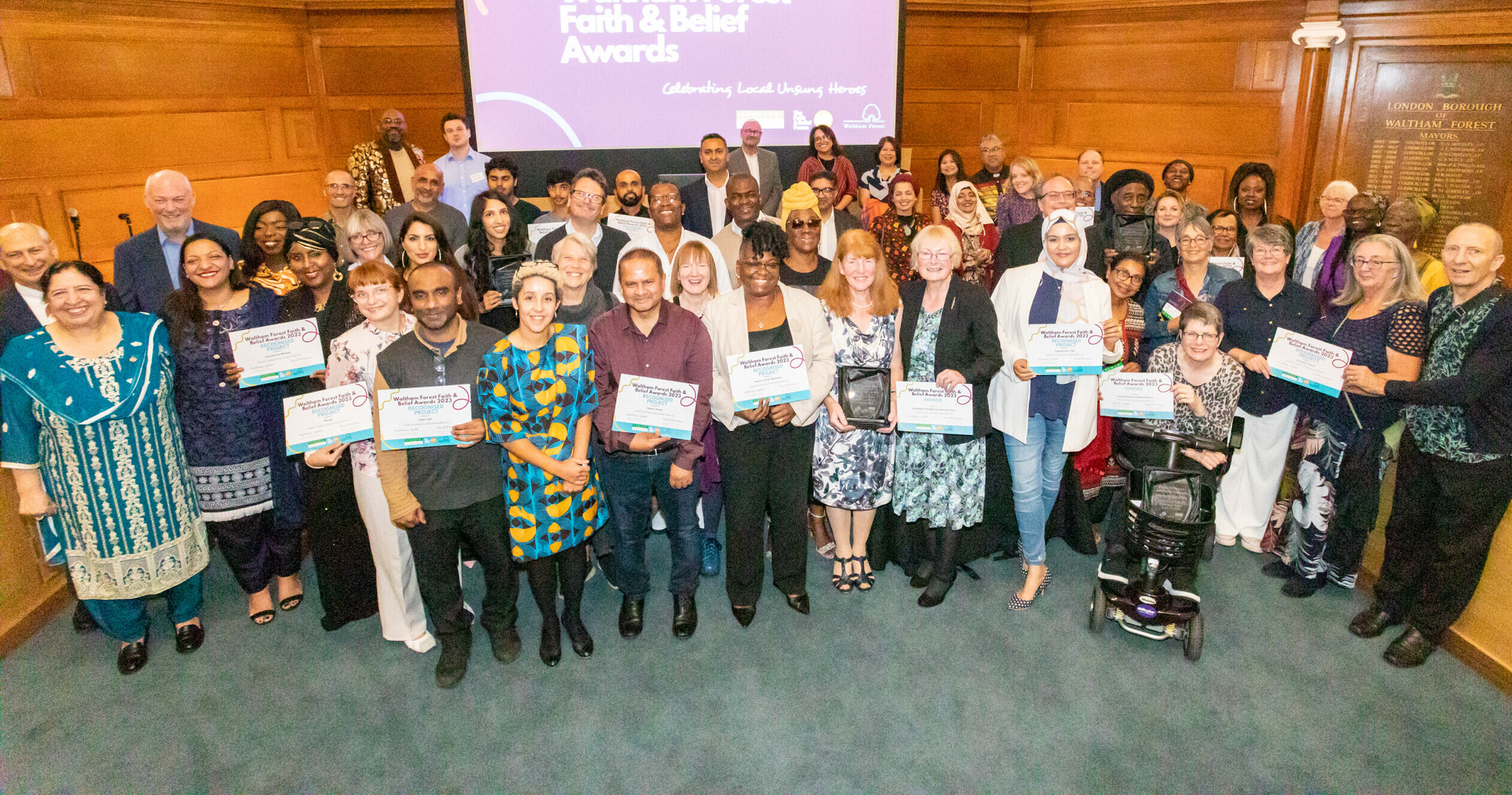
Menu
Menu

08 / 05 / 24
Raahim Z.
Following the recent prayer ban at Michaela School, London and the High Court ruling upholding it, we’ve been speaking with our network to hear their thoughts, feelings and reactions to the story.
The Faith & Belief Forum (F&BF) works in schools, communities and universities to bring diverse people closer together.
F&BF uses a range of approaches with much of our work grounded in a personal story methodology. Our experience working for 25+ years has demonstrated time and again that no two people of faith are the same.
Bringing each person’s unique story to the fore brings their experiences to life beyond the simple “facts and figures” writing that we’re used to – especially for something as personal, meaningful and real as experiences of faith and belief.
Marwa is a young, hijab wearing Muslim woman who graduated from F&BF’s ParliaMentors programme in 2023. She shared – how through ParliaMentors – her faith was brought “to the fore of social action and policy” to inspire, to motivate, and to connect with people across diverse backgrounds to address real issues.
On ParliaMentors MPs mentor university students as they deliver a lasting social impact project.
“What I love about ParliaMentors is that I felt empowered by my faith – it’s not a limitation.”

As well as emphasising the importance of faith to her work today, Marwa also recalls an anecdote from her time in school, “If you’re able to practise in school, you’re able to bring your whole self in. I didn’t go to a very diverse school – I was one of the few Muslims there. We were very fortunate during Ramadan – a really important time for Muslims when we pray extra and spend time reflecting on ourselves – a non-Muslim teacher advocated for us to get a separate room to pray in during our breaks. I felt seen, as a Muslim woman; I could come as a whole Muslim person.”
Marwa also highlighted the importance of not compartmentalising aspects of your identity in order to ‘integrate’ or ‘fit in.’ She said “You can come as yourself rather than being this cookie-cut person, where you leave your faith and beliefs behind, and coming to school as a different person.”
Amy – short for Amandeep – works on the F&BF Schools team and is herself a Sikh. She had a very different experience to Marwa growing up, not feeling confident about her distinct background or empowered to share it.
“It took me a long time to become comfortable in my own skin, about my own faith and identity.”
“I went to a mainstream school and we were never encouraged to open up about any parts of our identities. Our religious education classes were very textbook driven, so when we learnt about Sikhism it didn’t connect at all to my lived experience.”
Contrary to traditional religious education, F&BF’s methodology brings volunteer speakers to share their unique journeys of faith to primary and secondary school children. One thing this highlights is the dynamic nature of each individual’s faith, with the encounter itself leaving a powerful human imprint on the young people’s experience of school.
Not having that sort of experience led Amy to have “something of a crisis of identity: the life I lived at home or in my community was very different to the person I represented myself as at school.”
Amy’s crisis of identity wasn’t limited to the classroom, but extended beyond to the culture that had started there. “Even with friends it wasn’t something I would open up about because it wasn’t encouraged, it wasn’t socially acceptable – it was this other part of me that I would shut away.”

“It wasn’t until I went to university that I met people who had similar backgrounds – Asian backgrounds, Sikh backgrounds – but manifested their whole identities freely and openly. I could see the difference in how they carried themselves with confidence compared to the internal struggles I carried.
“I didn’t have the space and time to explore my own faith and identity naturally while growing up in school, so it wasn’t something I was able to come to terms with until much later in my life.”
Reflecting on the work F&BF has done in schools, she adds, “I can see a real difference in the schools we’ve worked with over the past few years. We work with schools to make sure the fit is right depending on their context to create spaces for young people to explore all parts of their and others’ identities.”
“Where you see it working well, you can see the confidence in those young people, you can see that faith and belief is an integral part of inclusion policies, and the space exists for them to have those conversations where their faith comes into their lives without stigmatisation.”
Solomon is a young Jewish university student, about to pursue his PhD. He is visibly Jewish, wearing a kippah and often praying openly on campus. Solomon went to Jewish faith schools growing up and reflected on how Judaism was an essential part of not just his education, but his and his peers’ whole identities.
“We started school earlier at about 8am, and finished later than normal schools around 6pm so that there would be time to practise and study our faith – without detracting from anything else. It was not at the expense of our education. If you’d asked anyone going into the the school – as much as kids love playing and messing around – ‘would you prefer just not to do the Jewish stuff?’ No one would have said that.”
Quite emphatically, Solomon adds, “If I couldn’t practise my faith at school, I wouldn’t go to school.”
He echoes what Marwa said that if prayer is done in a student’s private time, and there’s no compulsion, then there’s no harm and in fact:
“For many people who are religious, it is their whole identity.” Solomon also remarked that “it’s obvious – if you take away people’s religion there are going to be mental health problems.”
Problems of mental health and bringing your whole self to school on one side, Solomon draws on the academic consequences of feeling unwelcome. In recent months, antisemitism in universities has reached unprecedented levels and many of his friends are simply not coming in anymore – or if they do, they are constantly stressed, wary of trouble, or more generally in a state of hyper-vigilance where their academic potential is being stifled as a result.
The Faith & Belief Forum recognises faith is a lived experience – contrary to the textbook driven theoretical way it is usually taught.
Marwa, Amy and Solomon each shared personal stories of how a welcoming, non-aggressive environment is not only a bare minimum for healthy learning, but its absence can and has impeded young people from thriving beyond just their studies.
Faith being scrutinised, banned, marginalised, or even forcefully compartmentalised can have severe effects on students’ sense of belonging, their academic attainment and, most importantly, their wellbeing.
Ultimately, in an era of growing social polarisation, leaders and teachers must be conscious that the consequences of their policies may stretch far beyond the classroom.

15 / 03 / 24

19 / 02 / 24